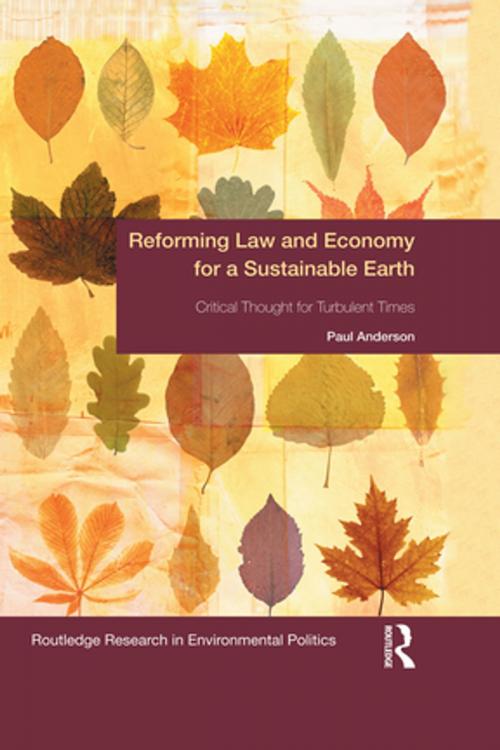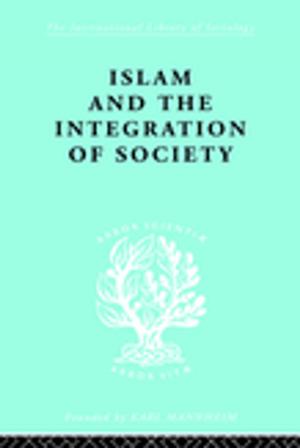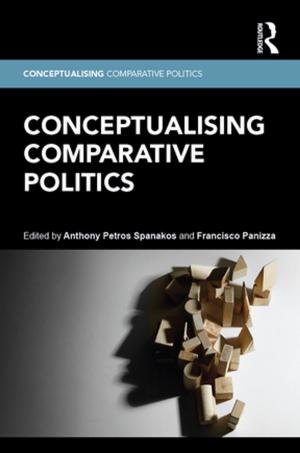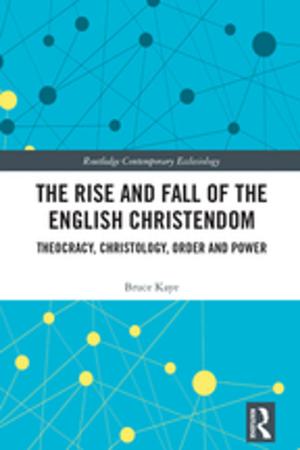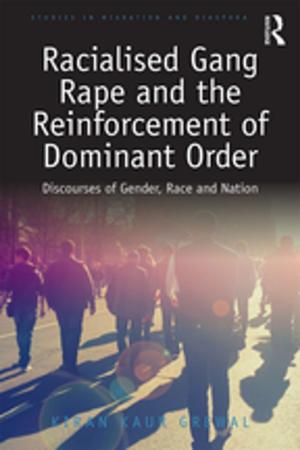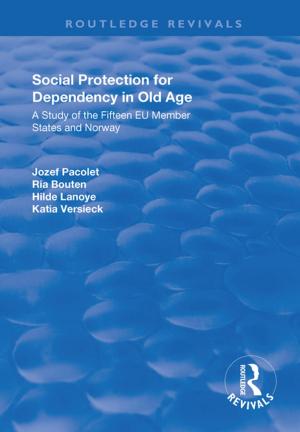Reforming Law and Economy for a Sustainable Earth
Critical Thought for Turbulent Times
Nonfiction, Religion & Spirituality, Philosophy, Political, Social & Cultural Studies, Political Science, Politics, History & Theory| Author: | Paul Anderson | ISBN: | 9781317704539 |
| Publisher: | Taylor and Francis | Publication: | September 19, 2014 |
| Imprint: | Routledge | Language: | English |
| Author: | Paul Anderson |
| ISBN: | 9781317704539 |
| Publisher: | Taylor and Francis |
| Publication: | September 19, 2014 |
| Imprint: | Routledge |
| Language: | English |
Few concerns preoccupy contemporary progressive thought as much as the issue of how to achieve a sustainable human society. The problems impeding this goal include those of how to arrest induced global environmental change (GEC), persistent disagreements about the contribution of economic activities to GEC and further differences in views on how these activities can be reformed in order to reduce the rate of change and thus to mitigate threats to much life on Earth.
Reforming Law and Economy for a Sustainable Earth aims to help resolve these problems in two ways. Since addressing GEC will require global coordination, the book first clarifies the conditions necessary to achieve this effectively. Paul Anderson explores these conditions with the aid of a sustained analysis of key concepts in influential disciplines, particularly in social and political theory and law, relating to the transition to a sustainable economy. Second, Anderson tackles the problem of how to arrest GEC by incisively evaluating two leading theoretical positions in terms of their capacity to support the conditions required for effective global coordination.
From this basis, the book offers an extensive critique of the idea that global environmental problems can be solved within the framework of global capitalism. It also critically reviews and advances the proposition that global sustainability can be achieved only by changing the capitalist form of organizing the economy.
Enriched by a genuinely interdisciplinary approach, the originality of Reforming Law and Economy for a Sustainable Earth lies in the manner it combines a rigorous analysis of the requirements for global sustainability with decisive conclusions as to what are, and what are not, viable means of fulfilling those requirements. The book advances research on sustainability within key disciplines, among them political theory, law and social science, by offering a timely and insightful statement about the global environmental predicament in the 21st century.
Few concerns preoccupy contemporary progressive thought as much as the issue of how to achieve a sustainable human society. The problems impeding this goal include those of how to arrest induced global environmental change (GEC), persistent disagreements about the contribution of economic activities to GEC and further differences in views on how these activities can be reformed in order to reduce the rate of change and thus to mitigate threats to much life on Earth.
Reforming Law and Economy for a Sustainable Earth aims to help resolve these problems in two ways. Since addressing GEC will require global coordination, the book first clarifies the conditions necessary to achieve this effectively. Paul Anderson explores these conditions with the aid of a sustained analysis of key concepts in influential disciplines, particularly in social and political theory and law, relating to the transition to a sustainable economy. Second, Anderson tackles the problem of how to arrest GEC by incisively evaluating two leading theoretical positions in terms of their capacity to support the conditions required for effective global coordination.
From this basis, the book offers an extensive critique of the idea that global environmental problems can be solved within the framework of global capitalism. It also critically reviews and advances the proposition that global sustainability can be achieved only by changing the capitalist form of organizing the economy.
Enriched by a genuinely interdisciplinary approach, the originality of Reforming Law and Economy for a Sustainable Earth lies in the manner it combines a rigorous analysis of the requirements for global sustainability with decisive conclusions as to what are, and what are not, viable means of fulfilling those requirements. The book advances research on sustainability within key disciplines, among them political theory, law and social science, by offering a timely and insightful statement about the global environmental predicament in the 21st century.
